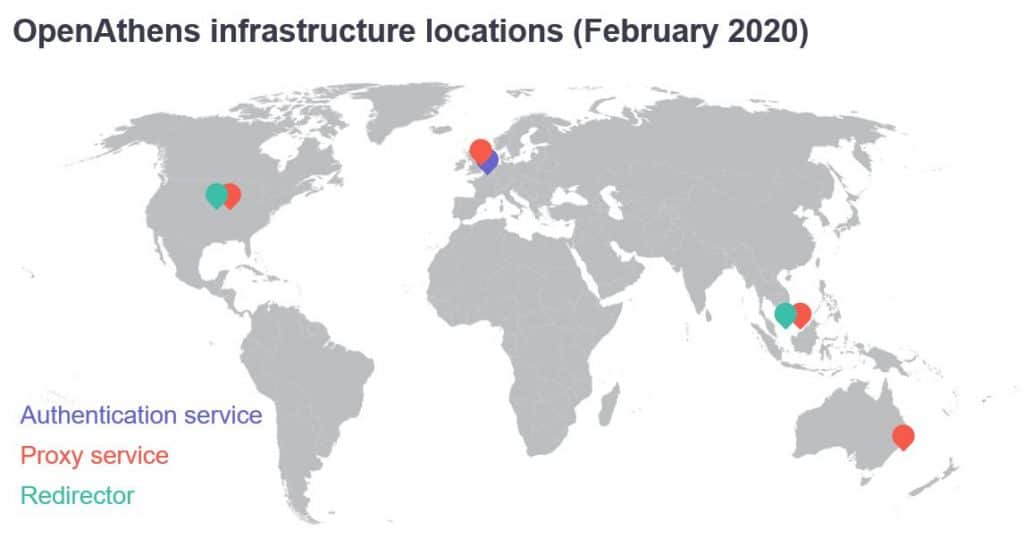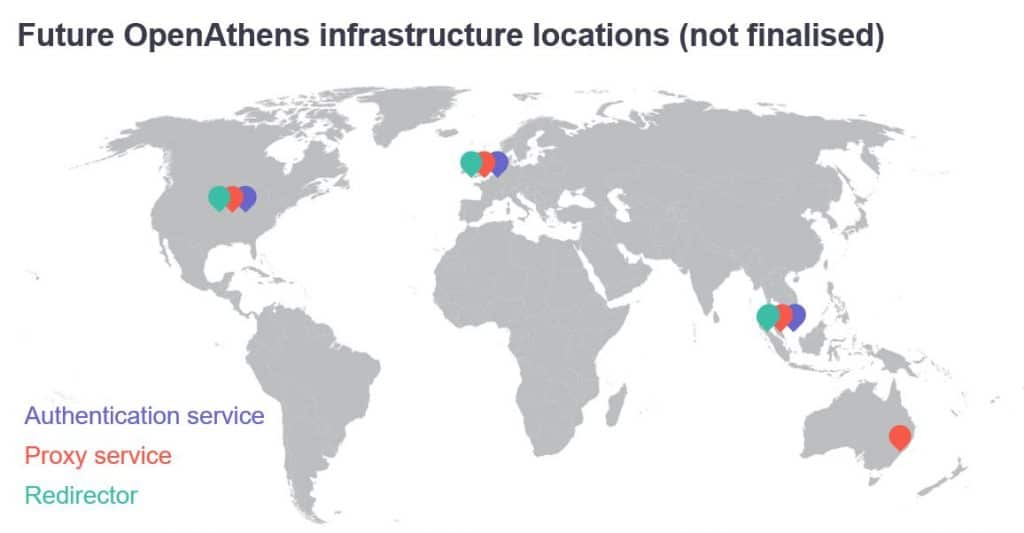
Supporting our customers worldwide
We recently caught up with our commercial director Jon Bentley and IT director Neil Scully. They discussed the work we have been undertaking in the last two years as part of our global growth strategy and supporting our customers worldwide.
The need to go global

"There’s been a shift in our user base in the past couple of years to move from a mostly UK audience to being able to serve over 60 countries. We realized as a team that we needed to adapt some of our processes. This was to ensure we could offer the best user experience no matter where people are based."
Neil Scully picks up the story in the decisions the team made:
"One of our major growth territories has been in Australia. When we first started working with institutions there we quickly realized that when a user logged on via OpenAthens, they were routed around the world. From our servers in the UK, then to a publisher, back to OpenAthens and then back to the user. This was the common scenario when someone wanted to log in. "
There were also legal and ethical considerations alongside the need for efficiency. For example, each organization prefers to have the processes of the data in the country or region they are located in. This is a complex issue where there are lots of different government legislation to consider. Our challenge was to make sure we could enable the efficient transfer of data internationally, while still complying with relevant laws and regulations.
Operational changes
We previously ran a physical data center as part of Eduserv with all servers being UK-based.
Two years ago, we made the switch to the public cloud and chose the Google Cloud Platform (GCP). This coincided with the closure of the data center and so prompted a review of data handling and storage protocols.
The move to becoming a cloud-based operation enabled ease of access to public servers in other locations outside the UK. This made the offer of a global architecture a reality with a proxy service now running in the UK, US, and Australia.
Our team has adapted through this phase of change to become agile and highly responsive to the needs of our customers in multiple territories as part of our global growth strategy.
Future-proofing

Neil explains some further benefits:
"Working on Google’s public platform means we can manage work higher up the stack. As a result some services now run on serverless architecture. This reduces the maintenance and time required to manage servers and networks. Robust security protocols mean we have a highly effective intrusion detection system. This means data is much more secure than if we were operating a physical data centre. We offer state of the art networks and infrastructure to our customers. Access to in-depth performance reporting enables us to track trends and patterns in usage. This insight allows us to make strategic decisions on where our services need to be based to meet local need. "
Jon comments:
This has been an incredible achievement by the technical team. It’s solved any legacy issues that we may have faced and reduced risk, improved data storage and added increased security measures. We have been ahead of the curve in shifting to the public cloud. We took the decision to make the migration swiftly and for the benefit of our users worldwide. We have an exceptionally strong platform which will serve the needs of users long into the future.

What does the future hold for OpenAthens?
If you would like to find out more about our plans for the future please check out our product roadmap.
